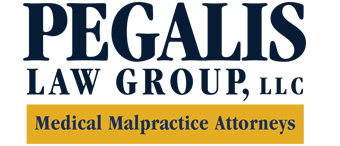Ovarian Cancer Awareness Month: Understanding Your Risk Factors

Ovarian cancer is a type of cancer that develops in a woman’s ovaries. While ovarian cancer is relatively rare, it’s important to diagnose it in its earliest stages so that it can be treated effectively. Unfortunately, ovarian cancer is difficult to diagnose easily because its symptoms are subtle. Since there is no screening for early ovarian cancer, it’s important to talk to your doctor if you are considered to be at risk. September is Ovarian Cancer Awareness Month, so it’s the perfect time to check yourself for the symptoms which include bloating, pelvic or abdominal pain, vaginal bleeding, weight gain or loss, change in bowel or bladder habits, to name a few. These are some of the main risk factors for developing ovarian cancer:
- Family history of ovarian or breast cancer
- A personal history of breast cancer prior to age 40
- A personal history of breast cancer prior to age 50 as well as one or more relatives diagnosed with breast or ovarian cancer at any age
- Two or more close relatives diagnosed with breast cancer prior to age 50, or with ovarian cancer diagnosed at any age
- Ashkenazi Jewish Heritage and a personal history of breast cancer prior to age 50
- Ashkenazi Jewish Heritage and a first or second-degree relative diagnosed with bread cancer prior to age 50, or with ovarian cancer at any age
- The BRCA1 or BRACA2 genes put you at high risk. 1 in 5 or higher if you inherited certain mutations in genes that are involved in cell growth division and DNA repair
If you are concerned about a misdiagnosis or possible medical error, contact the law firm of Pegalis & Erickson, LLC in New York. For 46 years, we have advocated for people of all ages, in order to help our clients financially and make healthcare safer for everyone. You can reach us today by calling (516) 684-2900.
Attorney Advertising
Recent Posts
Popular Posts
categories
- Uncategorized
- Infographic
- Patient Safety
- Patient Health
- Stillbirth
- Birth Injuries
- Medical Malpractice
- Medical Negligence
- Event
- Erb's Palsy
- Injury
- ER
- Video
- Cancer Misdiagnosis
- Medication Errors
- Cerebral Palsy
- Medical Negligence Lawyer
- Anesthesia Injuries
- Brachial Plexus
- Prostate Cancer
- About Us
- Men's Health
- Skin Cancer
- Breast Cancer
- Misdiagnosis



